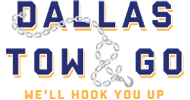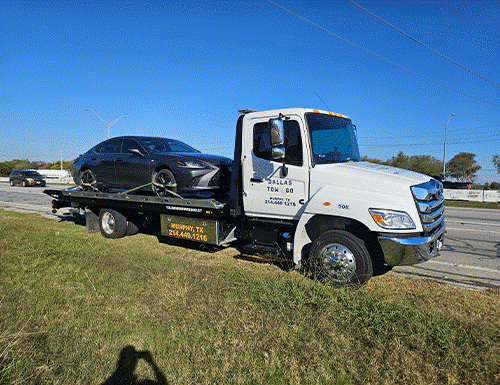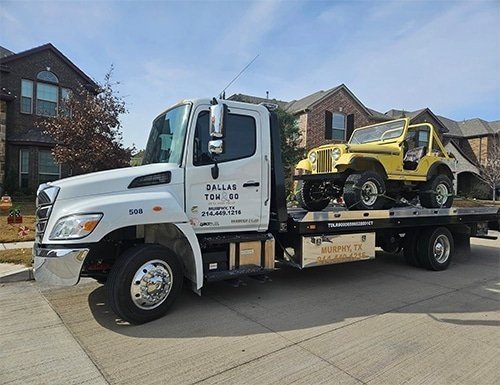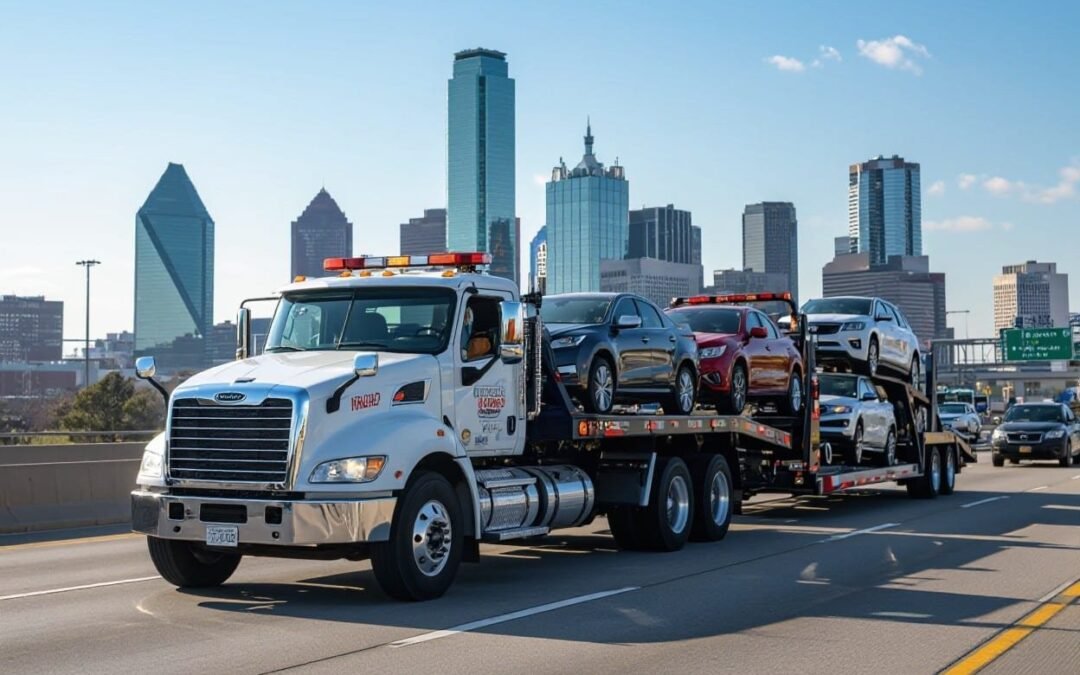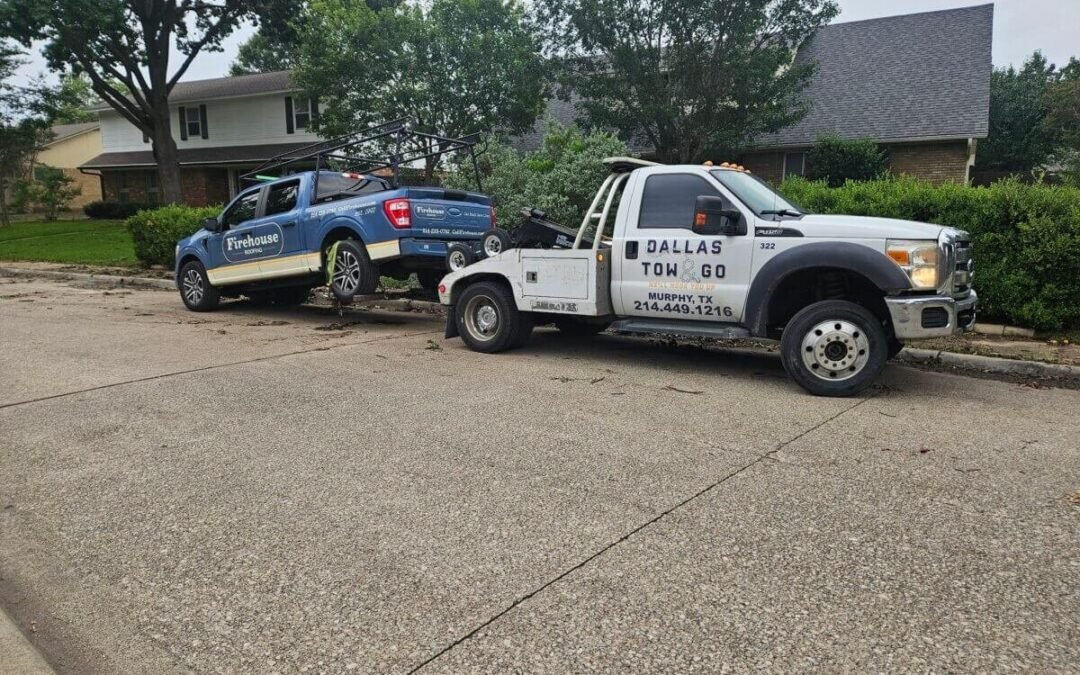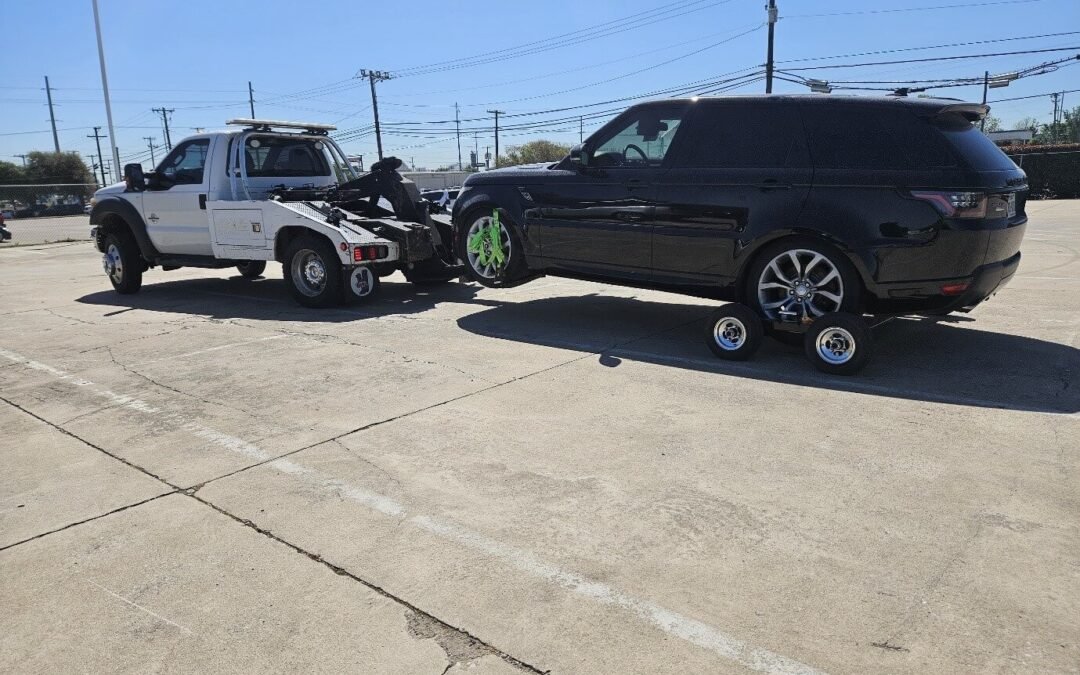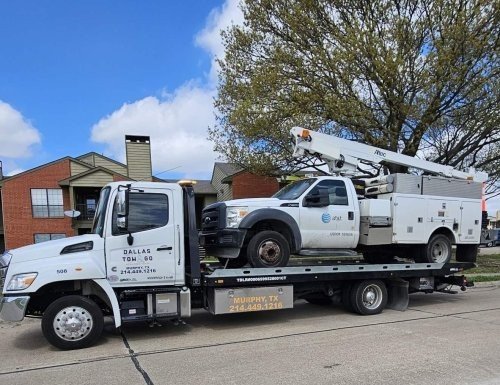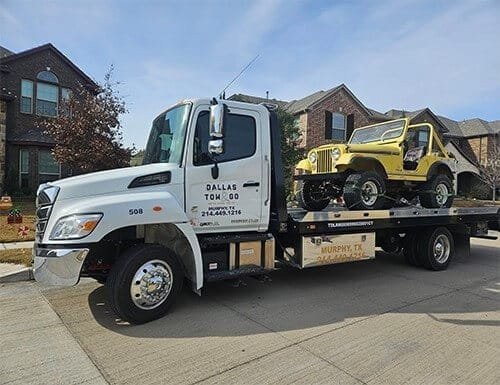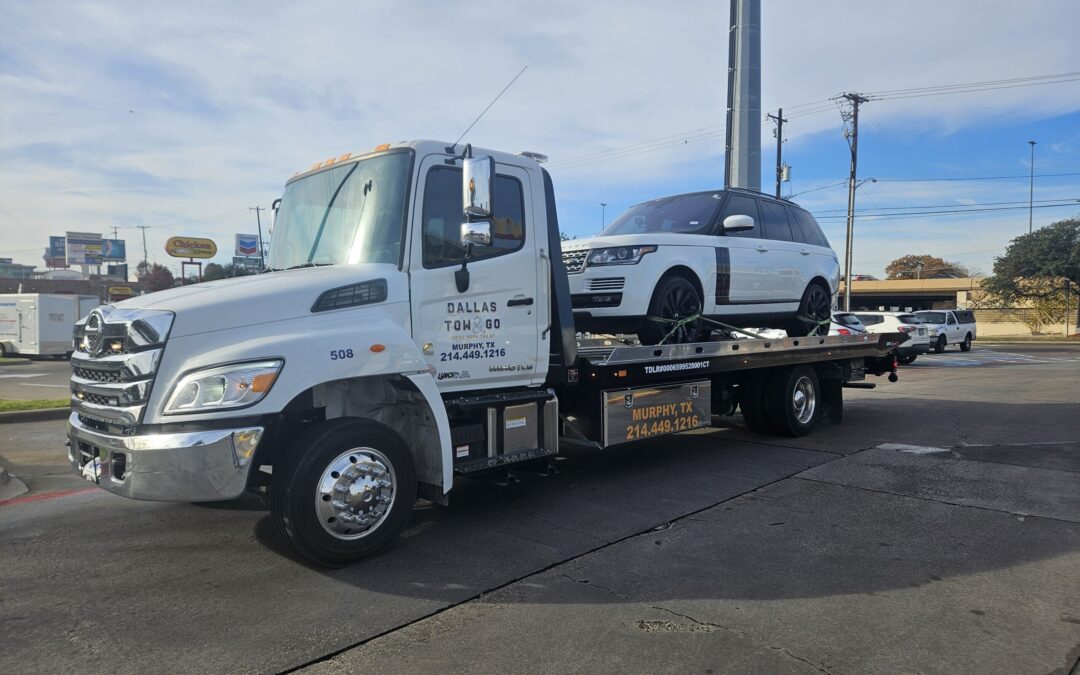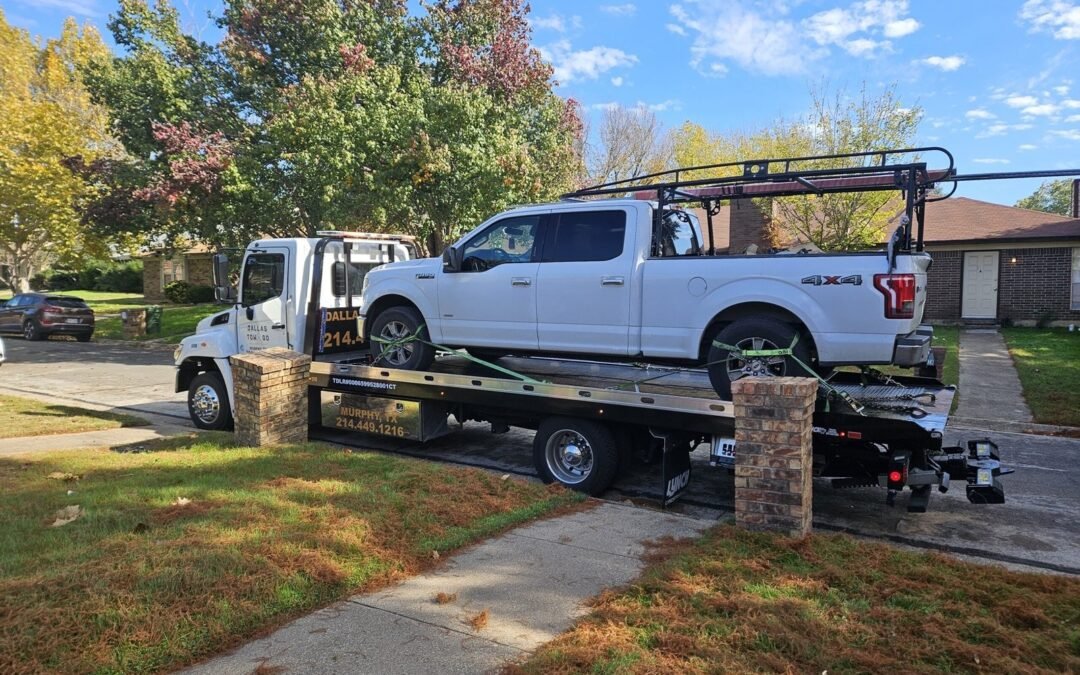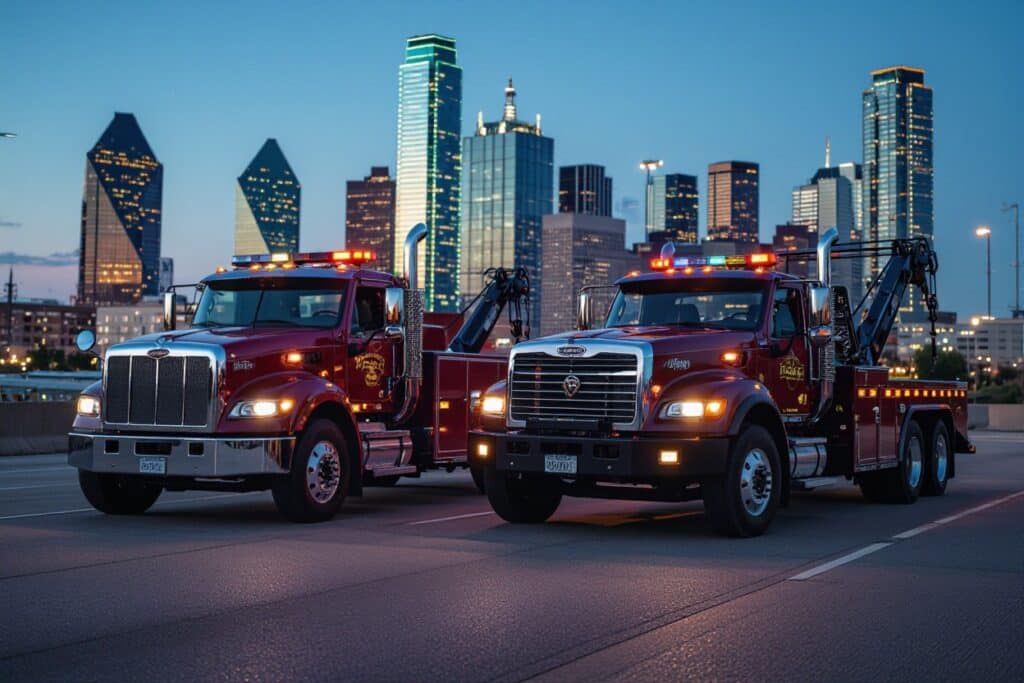
When you find yourself stranded on the side of the road in Dallas, the last thing you want to worry about is whether your vehicle is being towed safely. Over the course of a breakdown, you need clear guidance to pick the right method—flatbed or wrecker—for your car. For a trusted partner like Dallas Tow & Go, providing secure, damage-free transport is our top priority. When you call for car towing in Dallas, you expect and deserve professional service, trained operators, and minimal risk to your vehicle. In many situations, a flatbed is the ideal choice to keep your car level and protected, while some complex recoveries or short-distance moves are better suited for a wrecker. The best car towing teams and operators in Dallas will assess your situation and recommend the safest and most efficient option for your specific needs.

The Mechanics of Towing: Flatbed Explained
Flatbed rigs carry your vehicle fully on a steel platform, keeping all four wheels off the road. Typical bed lengths range from 18 to 30 feet, with payloads from approximately 7,000 to 30,000 pounds, and hydraulic tilt plus winches rated from 5,000 to 12,000 pounds. In car towing Dallas scenarios, you’ll see these used for high-value vehicles, EVs, and heavy equipment because the whole-vehicle lift lowers the risk of chassis or drivetrain damage during transport.
How Flatbed Towing Works
Operators lower the bed hydraulically to form a ramp, then either drive the car onto it or pull it up with a winch. Angles commonly sit between 12° and 20° to ease loading, while straps and wheel chocks secure the load to distribute the weight over the axles. When you request car towing services in Dallas, technicians log the GVWR and secure anchor points to prevent shifting, often using soft straps on alloy wheels to avoid cosmetic damage.
Advantages of Flatbed Towing
Flatbeds eliminate tire wear and prevent driveline stress since your vehicle isn’t towed with wheels on the ground; insurers and recovery pros often prefer flatbed towing for all-wheel-drive, low-clearance, or specialty cars. Choosing flatbed towing in Dallas reduces the chance of bumper, suspension, or transmission damage that can happen with wheel-lift wreckers, especially over long hauls.
For example, if your AWD or electric vehicle suffers front-end damage, flatbed transport prevents further transmission or motor strain that could cost thousands to repair. In car towing operations, you’ll notice flatbeds handle salvage, dealer deliveries, and long-distance moves more safely; while slightly pricier than a wrecker, the reduced repair risk and fewer insurance claims often justify the cost.
Wrecker Towing Unveiled: Safety and Efficiency
Wrecker crews give you rapid scene control and targeted recovery, often clearing accident lanes faster than rollbacks. In car towing Dallas operations, you’ll see wreckers used for upright recoveries, heavy winch pulls, and quick wheel-lifts that reduce on-road exposure for you and responders. Tactical positioning and specialized gear cut scene time, lowering secondary-collision risk and minimizing damage compared with improper towing methods.
The Functionality of Wrecker Towing
Wreckers combine a boom, winch, and wheel-lift to extract and secure vehicles from ditches, medians, and crash sites; light-duty units commonly handle up to about 10,000 lbs, medium units 10,000–25,000 lbs, and heavy wreckers exceed 30,000 lbs. For car towing, you’ll notice operators choose boom-and-hook for overturned rigs and wheel-lifts for short-distance moves, giving you versatile recovery options that flatbeds can’t match on technical recoveries.
Key Benefits of Using a Wrecker
Wrecker use in car towing yields faster clearances, lower labor time at the roadside, and the ability to recover vehicles without a whole flatbed rig—saving you money on simple tows and complex recoveries alike. You get targeted damage control via wheel-lifts, stronger winch capacity for stuck vehicles, and quicker service in heavy-traffic corridors where rapid removal matters most.
Operational data from local towing firms show average scene times for wreckers of 15–25 minutes on common incidents versus 30–45 minutes for flatbed-dependent responses, so you benefit from reduced traffic exposure and faster return to flow. Fleet managers and insurers in Dallas favor wreckers for on-site repairs and short-distance moves, while you retain flatbed options for totaled or specialty cars that need full-platform transport.
Risk Assessment: A Safety Comparison
Risk Comparison
| Flatbed Towing | Wrecker Towing |
|---|---|
| You get full-body support and lower contact points; 4-point tie-downs with 2″ ratchet straps (≈3,800 lb WLL) and winches rated 6,000–12,000 lb reduce roll and body damage—preferred in car towing dallas for low-clearance or AWD cars. | You rely on booms or wheel-lifts with Grade 70 chains and snatch blocks; winches often run 12,000–30,000 lb, raising risk of suspension stress or frame damage if hooked incorrectly—better for rollbacks and heavy recoveries. |
Safety Protocols for Flatbed Towing
Use a 4-point securement pattern and center the vehicle to keep its center of gravity between axles; apply 2″ ratchet straps with 3,800 lb WLL on each corner, chock wheels, and engage the winch at a low-speed, steady pull—tilt angles under 15° cut ramp slippage. If you work in car towing dallas, inspect bed rails and strap anchors before every load and follow DOT cargo securement rules.
Safety Protocols for Wrecker Towing
Anchor to manufacturer lift points with Grade 70 chains or rated bridle assemblies, use snatch blocks to reduce line tension, and deploy outriggers for stability; measure pull angle to avoid side-loading the winch. You should carry spare shackles, test brake locks, and wear high-visibility gear during in-car towing operations. Additionally, set cones 50–100 ft upstream on highways.
Additional measures include testing winches rated 12,000–30,000 lb for heavy recoveries, calculating the pull angle to avoid side loads, and using equalizing bridles to keep the load centered. You should also use handler-rated gloves and set cones 50–100 ft upstream. In car towing recoveries, many operators and dispatchers track pre-haul checklists. Local car towing companies in Dallas report fewer rollbacks after adopting 2-point immobilization.
Real-World Scenarios: When to Choose Which
You often face clear choices after a breakdown or crash on I-35, Loop 12, or a neighborhood street: a low-clearance sports car on a driveway, a mangled sedan after a collision, or a pickup stuck in a ditch. Typical local response times range from 20 to 45 minutes, and most tows are under 50 miles. Your call to a car towing service in Dallas should align with your vehicle’s condition, distance, and safety requirements.
Best Situations for Flatbed Use
Flatbeds excel when you require gentle transport for luxury cars, all-wheel-drive vehicles, or totaled vehicles that cannot be driven; light- to medium-duty flatbeds typically handle loads of 7,000–12,000 pounds. You’ll choose flatbed towing for long hauls, dealer deliveries, or vehicles with body damage where wheel lifts would harm suspension. Local tow truck operators in Dallas often recommend flatbeds for exotic cars and post-repair moves; utilize car towing flatbed options for safer delivery.
Ideal Scenarios for Wrecker Deployment
Wreckers are the go-to for off-road recoveries, rollovers, and multi-vehicle accidents where winching and lifting are required; medium-duty wreckers pull up to ~20,000 lbs, and heavy-duty units or rotators handle 30,000–80,000+ lbs. You call a wrecker for tractor-trailer incidents, buses, or large pickups blocking lanes. For quick scene clearance on busy Dallas highways, a wrecker tow often minimizes secondary collisions and traffic delays.
Operators use booms, winches, and shear-lift rigs to extract vehicles from ditches, underpasses, or overturned positions, ensuring controlled recovery without the risk of unsafe dragging. Police and roadside assistance in Dallas route complex incidents to certified recovery trucks and Dallas tow truck crews trained in stabilizing loads and documenting damage for insurance purposes. Choose a specialized car towing Dallas wrecker when the vehicle’s weight, position, or scene hazards exceed flatbed capabilities.
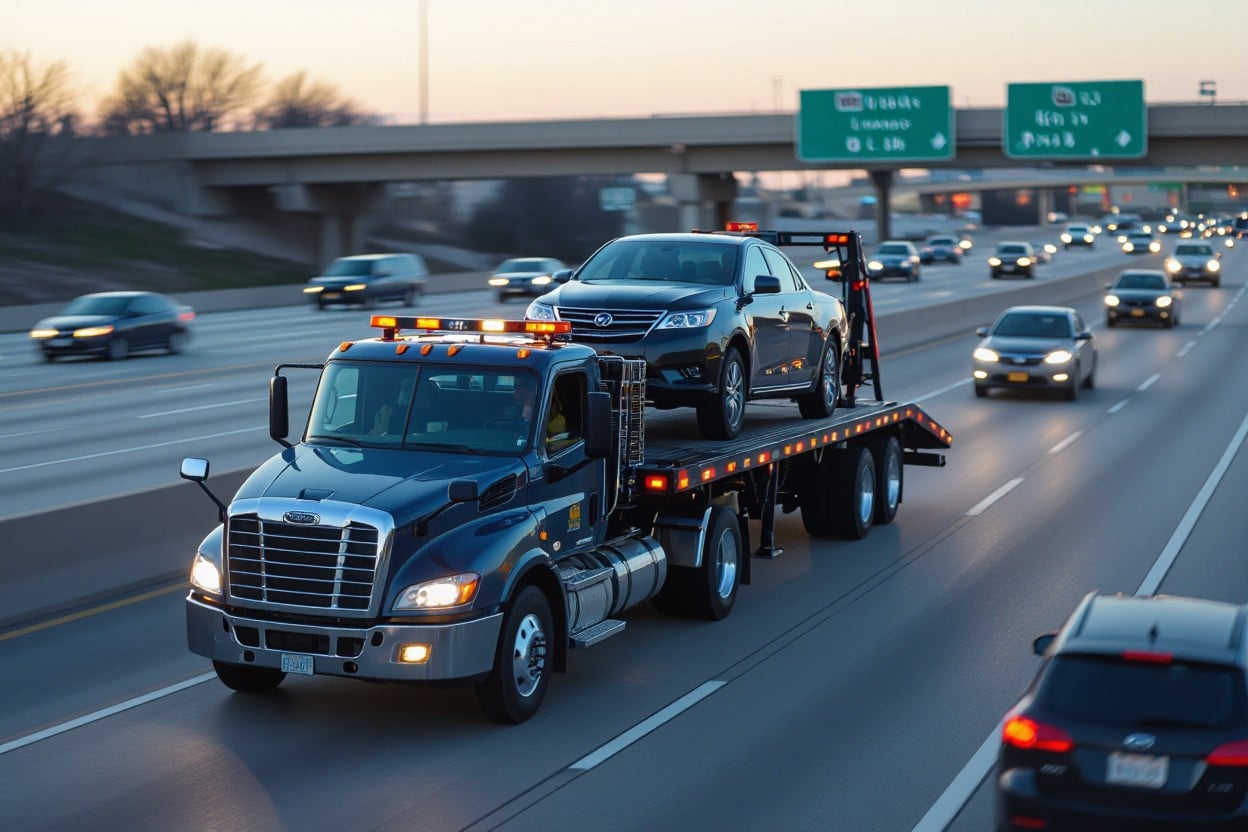
Expert Opinions: Voices from the Field
Insights from Tow Truck Operators
You’ll hear tow operators report that flatbeds cut vehicle contact risk and often shorten on-scene time by about 20–30% in congested Dallas lanes; technicians reference a common light-duty flatbed capacity of 7,000–10,000 lbs and recommend winch-first loading for front-end damage. For car towing calls involving luxury or salvage cars, operators prefer flatbed hauling over hook lifts to avoid drivetrain stress and secondary damage, citing safer and more secure points of attachment and fewer liability claims.
Perspectives from Vehicle Owners
Many owners you meet in Dallas prefer flatbed towing for low-clearance and high-value cars, citing fewer scrapes and better insurance outcomes. A local informal poll showed that about 65% choose flatbeds for imports and sports cars. Pricing differences matter: owners report paying $15–$40 extra for flatbed service, but most accept the premium to protect their resale value during car towing incidents and avoid later repair bills.
Owners often demand proof and transparency after a tow: you should get photos of the vehicle pre-load, a signed receipt with hookup method, and clear mileage or storage fees. When you compare flatbed towing vs wrecker service, check online reviews and insurance acceptance; handling disputes quickly lowers out-of-pocket costs for car towing and helps you document any damage for claims with the tow company or insurer.
Final Words
The decision between a flatbed and a wrecker ultimately comes down to a clear understanding of your vehicle’s needs and the specific situation you’re in. For modern, fragile, or high-value cars, a flatbed is the gold standard for safety, as it eliminates the risk of damage to the chassis and drivetrain. For complex extractions or quick, short-distance moves, a wrecker provides the necessary speed and power.
When you contact us for car towing in Dallas, you can trust that our trained operators will assess your vehicle and recommend the best course of action. Prioritize your vehicle’s safety by choosing a company like Dallas Tow & Go, which invests in the right equipment and prioritizes your peace of mind.
FAQ
Q: Which is safer for my vehicle: a flatbed or a wrecker?
A: Flatbeds are generally safer because the whole vehicle sits on the bed and all wheels are off the road, reducing wear and risk of damage. Modern wreckers with wheel-lift systems are safe for short trips when the vehicle’s frame and driveline can handle towing on the ground, but they can stress all-wheel-drive and low-clearance cars. For reliable handling and reduced risk during long-distance moves or for high-value vehicles, flatbed towing is typically the better option in car towing Dallas.
Q: When should I choose flatbed towing instead of a wrecker?
A: Choose a flatbed when your car has all-wheel drive, low clearance, central front or rear damage, or aftermarket parts that could be harmed by dragging or lifting. Flatbeds are best for long-distance moves, flooded cars, classics, and luxury vehicles. For the safest method with the least chance of additional damage during car towing in Dallas, request a flatbed.
Q: Are wreckers safe for emergency or short-distance tows?
A: Yes—wreckers are safe for many emergencies and short hops, especially when the towed wheels are the correct ones and operators use a wheel-lift rather than a hook-and-chain. They’re faster and cheaper for local pickups and simple breakdowns. However, for vehicles with damaged drivetrains, AWD systems, or those with low ground clearance, a wrecker can cause harm. For local quick moves, a reputable wrecker from a trusted tow service in Dallas can be an appropriate choice for car towing scenarios.
Q: How can I tell if a Dallas tow company is trained and safe?
A: Check for proper licensing, active insurance, DOT or state tow credentials, and transparent pricing. Ask if they have flatbeds, wheel-lift trucks, and trained operators who use winches and secure tie-downs. Read recent reviews and confirm they can handle your vehicle type. A professional business offering vehicle recovery and providing clear answers about methods is a good sign when searching for car towing in Dallas.
Q: Does choosing a flatbed over a wrecker cost more, and does that affect safety?
A: Flatbeds often cost a little more because they handle, load, and secure vehicles with less risk. The higher price usually reflects a lower chance of damage, which can save money on repairs later. Wreckers are cheaper for short, simple tows, but may increase risk for certain cars. Discuss with your insurer and the tow operator the best and safest option for your vehicle and situation in car towing in Dallas.
Don’t let a breakdown leave you stranded and unsure. For reliable and professional car towing services, trust the experts at Dallas Tow & Go. We provide a full suite of services, including emergency towing, flatbed and wrecker towing, and roadside assistance, ensuring we have the right solution for any situation. Our service area encompasses Dallas, Garland, Murphy, and surrounding areas, ensuring you’re never out of reach.
For transparent pricing and a team dedicated to the safety of your vehicle, call us now. Get back on the road safely and securely with the premier car towing service.
Dallas Tow and Go — Leading Tow Truck Companies in Dallas

